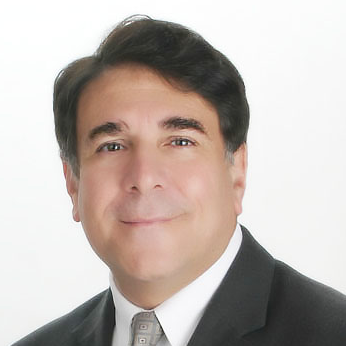Millions of people in the United States and around the world were affected by the June 2021 recall of Philips Respironics ventilators and CPAP and BiPAP machines. The Pittsburgh Post-Gazette and ProPublica reported on how the company kept complaints about the devices secret for years. As part of that reporting, the news organizations found answers for consumers trying to navigate the crisis.
We are not providing medical advice, and we encourage patients and their family members to seek guidance from trusted health care providers.
Why did Philips Respironics recall these breathing machines?
Foam that the company embedded in millions of ventilators and sleep apnea machines to reduce noise was found to break down, in some cases because of heat and humidity.
The material is polyester-based polyurethane, which is used to stuff mattresses, seat cushions and sofas. Tests for the company have found that when the foam degrades it can release chemicals at dangerous levels.
After receiving thousands of complaints, Philips announced a recall of about 20 models of ventilators and CPAP (continuous positive airway pressure) and BiPAP (bi-level positive airway pressure) machines. The Food and Drug Administration said that as many as 15 million devices with the sound-abatement foam had been sold since 2009.
The FDA, which oversees the medical device industry, declared the recall a Class 1 — the most severe type, reserved for device defects that can cause serious injury or death.
Was my ventilator, CPAP or BiPAP machine recalled?
The recalled machines were sold not only in the United States but around the world, including in Canada, Australia and Brazil. Most of the affected devices were DreamStations, the company’s first-generation CPAP machine:
Continuous Ventilator, Minimum Ventilatory Support, Facility Use
Continuous Ventilator, Non-Life Supporting (BiPAP)
Noncontinuous Ventilator (CPAP)
Mechanical Ventilators
What does the government say about the health risks?
The FDA has reported that when the foam breaks down the material can move through the device and be inhaled or ingested. The agency said users can experience headaches, asthma, inflammatory conditions, respiratory tract problems and “toxic or cancer-causing effects to organs,” among other health complications.
The FDA has advised consumers with recalled machines to consult their doctors about the best course of action, noting that some users may face greater health risks if they stop using their machines altogether.
The agency is providing safety updates and has continued to categorize the recall as Class 1.
What does Philips say about the health risks?
When the recall was announced, Philips reported that the defect had the potential to cause both short- and long-term health risks, including life-threatening conditions. Previously, two internal health hazard evaluations launched by Philips had concluded that the risk to people who used the machines was “unacceptable.”
In recent months, Philips has reported that initial testing was limited and based on a “worst-case scenario,” and that new tests on the DreamStation and similar devices have found the foam breakdown is “unlikely to result in an appreciable harm to health in patients.”
Medical experts who reviewed the findings on behalf of the Post-Gazette and ProPublica raised concerns about the company’s safety claims. The experts said that far more devices need to be tested to capture clear-cut patterns and that human studies examining exposure levels over time are critical to assessing long-term harm.
The experts also pointed out that the machines tested positive for genotoxicity, the ability of a chemical to cause cells to mutate, a process that can lead to cancer. Philips has said that a third-party assessment still concluded the DreamStations and similar machines are unlikely to cause harm. Testing on ventilators is ongoing.
How can I register for replacement machine or other device?
Customers whose machines were recalled are supposed to be able to get replacements from Philips, which has a patient registration site.
Though Philips has said millions of replacement devices have been sent out, customers have reported the process is riddled with delays.
To register, Philips requires the name of the recalled device and its serial number. The company also requires a current doctor’s prescription.
Philips is offering new machines, refurbished machines or financial payments in lieu of a new device, depending on the situation. The company advises customers who have retained lawyers to consult with them before making a decision.
Patients in the United States can register their recalled devices online or by calling the company at 877-907-7508.
Once you register, you should receive a confirmation number, which you can use to track the status of your request.
Are ozone cleaners to blame?
Philips has said that unapproved ozone cleaners customers use to clean their devices can accelerate foam degradation.
The FDA has advised consumers to avoid ozone or ultraviolet light cleaners on CPAP and BiPAP machines. But in a letter to the company last year, the agency said the blame for the crisis ultimately lies with Philips.
“There are reasonable grounds to believe that the risk associated with the devices was not caused by the failure of a person other than Philips to exercise due care in the installation, maintenance, repair, or use of the devices at issue,” the FDA wrote.
How can I tell the government about a problem with my device?
The FDA maintains a database known as the Manufacturer and User Facility Device Experience that tracks reports about malfunctions, patient injuries and deaths linked to medical devices.
Under the law, manufacturers, importers and certain facilities are required to report such events. But patients can report them, too, as can their relatives, doctors and other health care professionals, either through the FDA’s online MedWatch portal or by submitting FDA Form 3500B.
Is the information on social media trustworthy?
Many patients whose devices were recalled have taken to social media to gather information, including tips about safe ways to continue using the devices and where to find replacements.
Videos by YouTube personalities purport to show customers how to tear the foam out themselves, but safety regulators have warned against doing that because it can dislodge potentially toxic material.
The recall also helped fuel an online market for secondhand devices. Experts say that customers should seek proof that any recalled machine being sold online has been properly repaired.
While online forums can be helpful, public health experts say sleep and respiratory care doctors are in the best position to give you good advice.
Michael Korsh of the Pittsburgh Post-Gazette contributed.





Contributors
Pittsburgh Post-Gazette: Michael Wereschagin, assistant managing editor of investigations and data; Jordan Anderson, reporter
Northwestern University’s Medill Investigative Lab: Molly Burke, Margaret Fleming, Susanti Sarkar, Nicole Tan, Claire Gardner, Bridgette Adu-Wadier and Grant Schwab




Advertisement
Advertisement